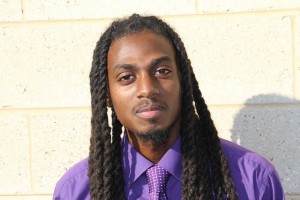- Calls to this hotline are currently being directed to Within Health or Eating Disorder Solutions
- Representatives are standing by 24/7 to help answer your questions
- All calls are confidential and HIPAA compliant
- There is no obligation or cost to call
- Eating Disorder Hope does not receive any commissions or fees dependent upon which provider you select
- Additional treatment providers are located on our directory or samhsa.gov
EDH Weekly Hope: A Look Inside the National Eating Disorders Association

At Weekly Hope, experts, clinicians, advocates and people with recovery stories from the wide spectrum of the eating disorder community are invited to share their stories, insights, and wisdom. In this week’s episode, we welcome Claire Mysko, the CEO of the National Eating Disorders Association (NEDA). She is joining us from New York City.
Part I: All About NEDA and How They Deal with Eating Disorders and Relapse.
Claire: NEDA is really about building communities and bringing people together. Eating disorders can be incredibly isolating. NEDA has grown over the past 20-plus years, and I have seen the evolution of the organization. It’s really special.
Our focus is really on families and people who are personally affected. Connecting them with clinicians, researchers, and people who are leading the field. I feel very privileged to be in this role and to work with these extraordinary people.
Kirsten: There was news that really rocked the recovery community of eating disorders to addiction. It was a news headline that Demi Lovato, a well-known pop singer and a vocal advocate on her personal recovery, journey, and struggle, was hospitalized for a drug overdose.
But I think it is just really important to recognize that there are thousands, if not millions of people who relapse or overdose every day but are not featured in the news. Their stories deserve to be honored as well.
What is your take and what are your thoughts on this? How can we respond in a way that is helpful and not stigmatizing or damaging?
Claire: There has been a huge reaction from the media community about this, and we have seen an outpouring of support for Demi. As you mentioned, she has been so vocal, authentic and honest about everything that she has been through.
This is often part of the past, and with eating disorders, there is usually a huge connection with other issues including substance use. We know that relapse is real so it is important that we use this moment to express our support.
What I have been very encouraged to see from the NEDA community is a sense of coming together. We have seen people responding to our posts on social media, encouraging others and saying that it is an important moment for us to be able to talk about the reality of recovery and stress the importance of reaching out and having a support system.
I think that this is a moment where we can talk about what recovery looks like and the fact that it’s not a straight line. It is often a long journey.
We should do what we can to use this moment as an opportunity to have an open conversation and connect with each other. I think that is how we can be really positive about this. Family and friends are an important piece of this, and it is a tough road, but recovery is possible.
I want everyone watching this to hold on to that sense of hope. Moments like this can lead us to question our sense of hope, but when we come together, that is what is important. A setback does not mean that recovery is not possible.
I think this is something that we all need to be talking about.
Kirsten: I agree. I have seen a lot of really wonderful support from people rather than condemnation. I think that is probably everyone’s worst fear– that if you relapse, if you backslide, if you mess up, all your support teams will leave you. When you see the amount of support, you realize that there is hope.
Part II: The Body Project
Kirsten: NEDA has teamed up with the body project, and that is something you are really passionate about right now. Tell us about this incredible program and how people can get involved.
Claire: We have recently taken on The Body Project as our primary partner in the United States. The body project is a body confidence program that is backed by 20 years of research.
The whole idea is to empower young people with the tools to talk back and to understand the kinds of messages that are coming at us. There is this onslaught of messages that are reinforcing the appearance ideal and whatever that “ideal” is, we should be able to resist that.
If you are interested in this program, you can visit the National Eating Disorders website to find out more. We have trained over 300 facilitators so far, and it is a train-the-trainer model. We are also going to be rolling out a shorter version of this program that is accessible more broadly.
I encourage all of you who are interested in this and interested in how we change our culture. We have to change the cultural messages around body image and move towards a more inclusive picture.
Eating disorders are very complex issues and very complex illnesses, and although we know that there is an influence from media, it is not the only thing that causes eating disorders.
We have to change the culture, allowing more people to be open and feel good about themselves; to feel good about their bodies and their recovery.
This is relevant for all of us who care about these issues and have been affected by eating disorders and disordered eating. As a parent of an eight-year-old, this is something that is very much on my radar. How do we teach young people a more holistic picture of health and instill body confidence and body acceptance?
Kirsten: Talk a little bit about how The Body Project has been received so far and what signs of success have you seen already with your trainings? Tell us a little bit more about this really exciting program.
Claire: We have been training trainers and facilitators across the country to deliver this program. We have seen a wonderful reaction from high schools and community-based organizations. We have also trained a number of our NEDA network organizations, a network of state and regional organizations across the country that do outreach programs and work on the ground. They are a really important part of the NEDA community.
We have also seen a great reaction from young women who participated in the program. Right now, we are working on a version for boys and young men because we recognize that eating disorders and body image issues affect everyone. We need this program for boys and men as well.
Facilitators themselves also benefit from the program and so going through this training has really been an eye-opener. People will talk to us about their comments on how they never thought about their own weight, their own insecurities about their bodies; comments that are very much a part of our culture.
It is an opportunity for people to really examine and say “wait a minute this is having a negative impact on me, and it is having a negative impact on the young people that I have an influence over.
It is about paying it forward and about the power of awareness. It is pushing back against cultural messages and the idea that has just been unfortunately accepted. The kind of talk like “oh I should not have this dessert” or “oh this is bad or sinful or sinfully delicious.”
All of these kinds of messages are around us all the time, and that is quite toxic. It contributes to a culture that promotes disordered eating thinking and disordered eating behaviors.
Part III: Community Involvement
Kirsten: What do you say to the critics? Because I get a lot of statements from people outside the recovery world, comments like, “well we do not want our kids to be fat” or “we have an obesity crisis.” That eating disorders and obesity cannot co-exist.
Claire: What I would say first of all is that shame is never a motivator for healthy behavior. The research says that. All kids and all young people deserve to learn about health and what makes your body feel good. Food and exercise are for building strength, and that means fun.
We need to frame food, weight, body image and exercise in a way that is not linked to a number on a scale or does not label certain body types as good and certain kinds of food bad. All the moralizing around food and weight is really damaging for all of us. That is my number one response.

We, particularly in the eating disorders field, know that there are people of all sizes who struggle with eating disorders and in order to recover, we have to push for body diversity in the media. We have to push for acceptance of the fact that there is a diversity of body types that exist naturally in the world.
Personally, I will say that being exposed to the messages around activism and Health At Every Size (HAES) has proven to be very powerful in my own recovery. We have to really think about that as we talk about the importance of body acceptance.
Kirsten: I love that it is evidence-based and that it is focused on prevention because there are obviously great organizations and treatment centers that provide treatment and treatment alone. But I love that NEDA is really focusing on prevention. That is always the goal.
Speaking of the culture, which you mentioned, what is your view on how we can make this conversation very beneficial to marginalized groups? How can we make other groups a part of our community more, to hear their voices and make sure that they are being heard?
Claire: For us at NEDA, a big piece of that is a partnership. So it is about partnering with organizations and individuals who are doing this work in communities where we know that eating disorders exist. And that is all communities, all ages, all races, all sizes, ethnicities and sexual orientations.
These are not illnesses that match up only with the traditional or stereotypical picture. We recognize that we need to look at the language of how we are talking about eating disorders.
Things like weight stigma and fat shaming are real, and so we have to confront these issues as a community, as a meaningful community. We also need to look at how different communities are affected by eating disorders and might not relate to the terminology.
There is a lot of work that we need to do, and I believe that partnering with organizations that are on the ground and doing this is really critical. NEDA just recently partnered with The Trevor Project, which is a crisis line for LGBTQ youth. We did a survey of the LGBTQ youth about eating disorder behavior because this is a population that has an especially high risk for eating disorders.
We have to be talking about eating disorders in a broader way, and you have to be reaching everyone, promoting the idea that everyone deserves recovery. I am really encouraged by the response from the community and the commitment of other colleagues.
Kirsten: What I have always loved about NEDA is that you are always on the front end of what is happening in this community, correct?
Claire: Yes. We think about the stereotypes and the stereotypical pictures that come to mind. We have to bust those myths and really be intentional about how we put forward different pictures and different stories.
When we talk about eating disorders, there is a spectrum of behaviors. I cannot tell you how often I hear from people through the NEDA hotline who say that they have waited to reach out for help or they did not think that they are deserving because they weren’t big enough or they do not look the part. We have to get over that barrier and when I say we I mean as an organization and as a field.

At the same time, as you mentioned so rightly, it is not just media influence but it is also the way people deal with stress, control or a myriad of other sociobiological and genetic factors that combined and for some people, those manifest in eating disorders. And it can affect everyone.
Claire: It does affect anyone, and that is something we need to talk about in a way that really addresses the complexity of eating disorders and behavior as a way of coping. There are often connections to other mental health issues like depression, anxiety, and trauma.
There are intersections that we have got to discuss. We need to open the conversation around relapse too, but I always go back to the idea that we have to hold on to hope.
These are issues and illnesses that are still prevalent, and we need to raise the profile of eating disorders. We need to talk about them as a serious public health crisis but also one that is treatable with resources, advocacies and with a strong sense of community. We can fight eating disorders, and that is our ultimate mission and ultimate vision in the world.
This is what drives me in this work because I believe that recovery is possible, and I want others to believe in that too.
Source:
EDH Weekly Hope interview with Claire Mysko on the EDH Facebook. “A Look Inside the National Eating Disorders Association (NEDA)” held July 26, 2018
Interviewee

Claire previously served as NEDA’s Chief Operating Officer, Director of Programs, and as a consultant on Proud2Bme and Proud2BMe On Campus, NEDA’s youth platforms. Prior to joining NEDA, she served as the director of the American Anorexia Bulimia Association and spearheaded the development of pioneering online communities at Girls Inc. and SmartGirl.
During her tenure at NEDA, Claire has overseen a rapid expansion in both reach and programs, including the implementation of an evidence-based eating disorders prevention program in New York City schools, initiatives to bust prevailing myths about eating disorders, and the cultivation of key relationships with companies including Aerie, Crisis Text Line, Facebook, Instagram, and Pinterest.
Interviewer

The opinions and views of our guest contributors are shared to provide a broad perspective of eating disorders. These are not necessarily the views of Eating Disorder Hope, but an effort to offer a discussion of various issues by different concerned individuals.
We at Eating Disorder Hope understand that eating disorders result from a combination of environmental and genetic factors. If you or a loved one are suffering from an eating disorder, please know that there is hope for you, and seek immediate professional help.
Published on October 3, 2018.
Reviewed & Approved on October 3, 2018, by Jacquelyn Ekern MS, LPC
Published on EatingDisorderHope.com
